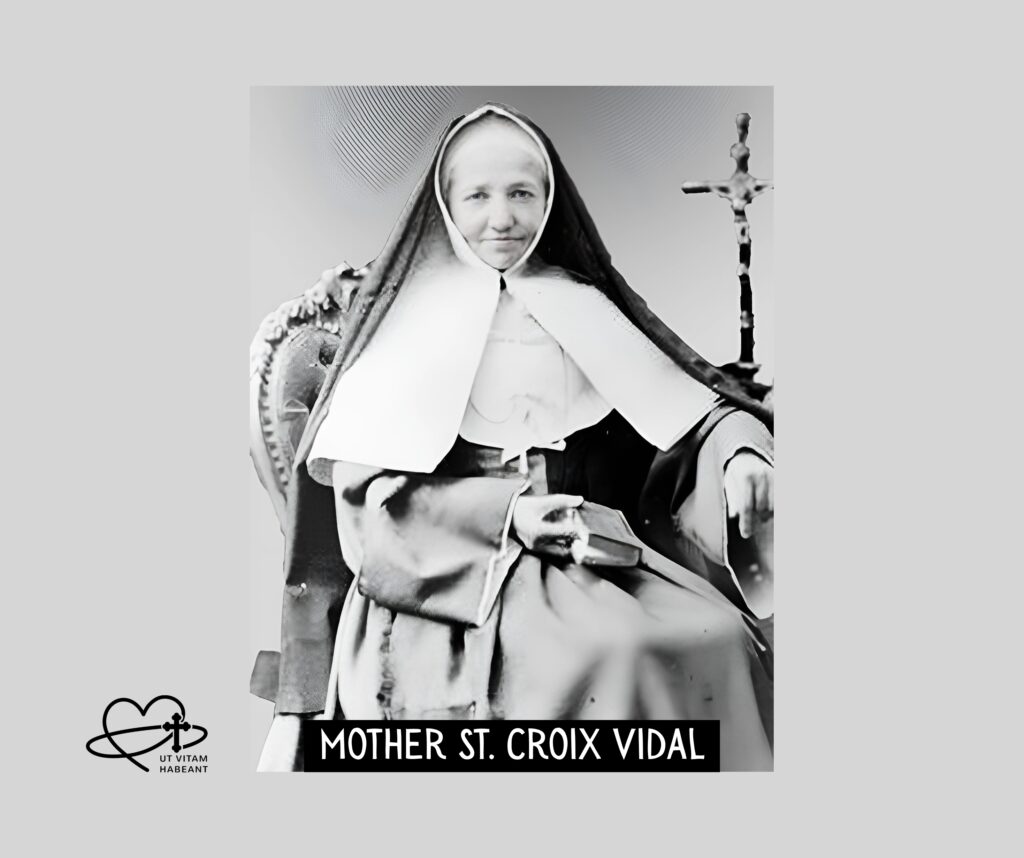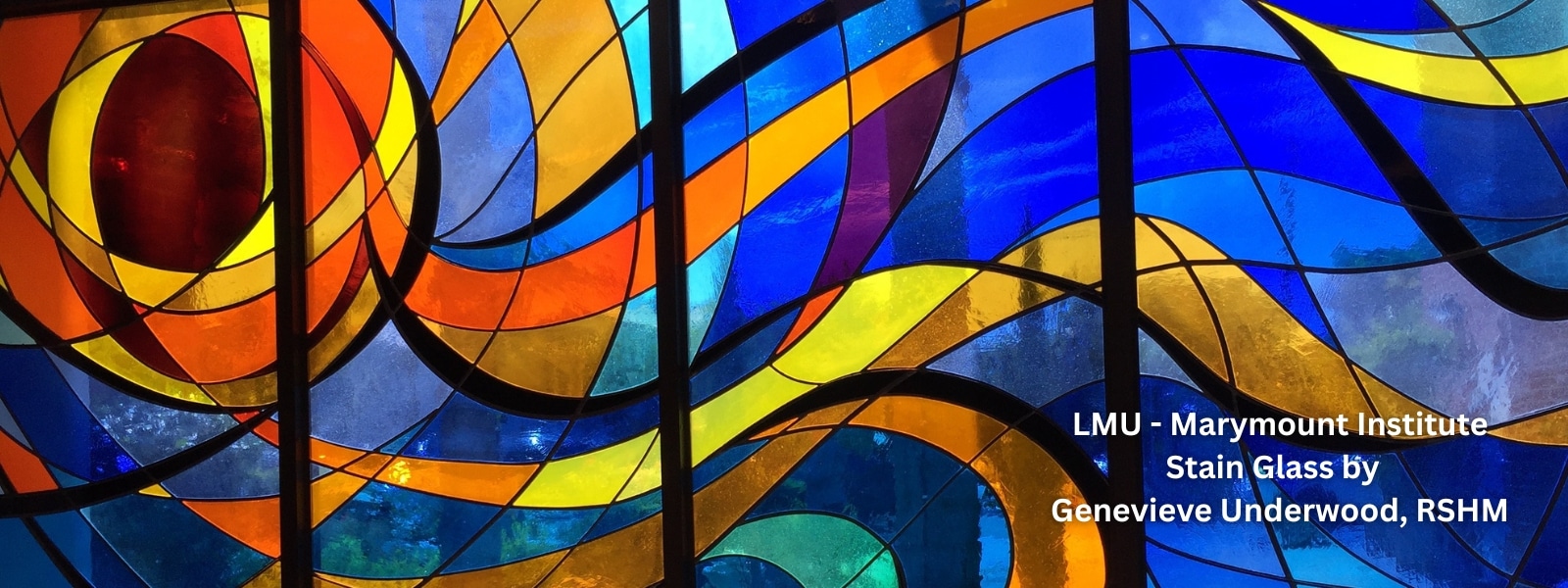
Mother St. Croix Vidal”]General Superior 1869 – 1878
“Our congregation embraces all works of zeal and all branches of society but it is the poor who are the special objects of our concern.” (Mother St. Croix Vidal, 1875)
Eulalie Vidal was born August 25, 1815, in Meyrueis, Lozere, in the south of France. Eulalie, with her sister, had been involved in education directing a boarding school in Béziers. She brought her talent for education to the Institute, becoming the directress of the first boarding school. Mother St. Croix was part of the founding group of the Religious of the Sacred Heart of Mary.
On May 1, 1869, in the presence of the founder, Mother St. Croix was elected second General Superior of the Religious of the Sacred Heart of Mary. She was known for her many visits and correspondence to communities and individuals. During her time as General Superior, the Institute opened its first house outside of France in Lisburn, Northern Ireland in 1870, followed by foundations in Porto, Portugal, in 1871; in Liverpool, England, in 1872; and Sag Harbor, New York, in 1877. Her energies were directed toward establishing these new foundations on a solid basis. The Institute was given its first pontifical recognition during her time in office. Mother St. Croix died September 4, 1878.
Almost two months had elapsed since the death of the first superior general and foundress, Mother St. Jean Cure, when the Motherhouse community gathered on May 1, 1869. The Veni Creator was sung, Mass was celebrated and then the twelve sisters having a vote in the community chapter gathered to elect her successor as superior general of the Religious of the Sacred Heart of Mary.
There is no evidence to suggest that there was a lengthy discussion of the qualities needed in this person, nor did this chapter explore and identify new directions and priorities for the Institute. These were already clear. Even before the death of the foundress, it had been decided that the Institute was being called to establish its works beyond the confines of Béziers, its cradle. The second superior general would need imagination, energetic perseverance and courage to explore and initiate these new foundations. Perhaps more important, she would have to be so rooted in the spirit of the Institute and so familiar with the intent and apostolic vision of the founding community that she could inspire her daughters, however distant, to be faithful to the spirit and vision, and to keep strong that unity which was their heritage.
M. Ste. Croix Vidal was, of course, well known to the members of this chapter. Born in Meyrueis (Lozère) in 1815 of a good Christian family, Eulalie Vidal became a teacher at eighteen years of age. She taught in Millau,Lodeve, Agde and Béziers where, at a young age, she eventually became the directress of the boarding school. Desirous to grow in the spiritual life, Eulalie came to Father Gailhac for direction, and became one of the five founding members of the congregation. Fifty-three years of age in 1869, she had been the directress of the boarding school at the Motherhouse since its beginning in 1851, using well her previous experience as directress in order to develop this important work of the community.
She had been M. St. Jean’s assistant, too, assisting many of the foundress’s responsibilities during her time of illness. This seems especially true of Institute efforts at expansion. In a letter to an unnamed priest in 1868, M. Ste. Croix explained that since M. St. Jean was almost habitually ill, it was she (M. Ste, Croix) who, guided by the spirit and insights of the foundress, had the honor of corresponding with him “relative to our projects of foundation.”
It was not surprising, therefore, that when the twelve votes cast in secret ballot were counted by Father Gailhac and Jane Gibbal, M. Ste. Croix was elected second superior general of the Institute. What is perhaps surprising is that the election was not unanimous, for the register of the Institute records: “Madame Ste. Croix received all the votes except her own and that of one other member of the community.” Once the bishop of Montpellier had given this formal approbation on May 3, the election became official. For the next nine years, until her death in September 1878, this remarkable religious would serve the Religions of the Sacred Heart of Mary as superior general.
Source: A Journey in Faith and Time
History of the Religious of the Sacred Heart of Mary Vol. 2
Sr. Kathleen Connell, RSHM

